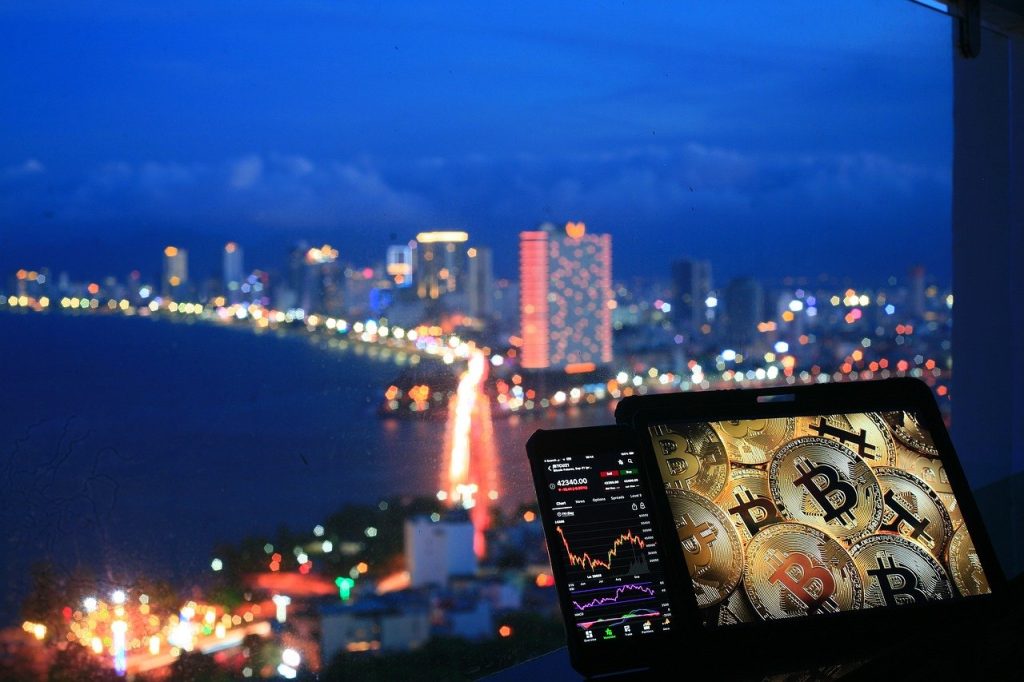As we mentioned earlier, about 90% of forex trading is speculative. There are several ways to invest in the forex market, and the most obvious one is simply physical purchase – if we think that the price of a given currency will be higher in the future, we can buy it in the form of banknotes or coins and sell it at a profit if its quotations actually rise. Individual.
What are Forex CFDs?
Of course, the physical purchase of currencies is not the most convenient and effective solution, which is why, among other things, with the development of financial markets, derivatives were created – financial instruments whose value depends on the value of the underlying instruments, which can be, for example, the exchange rate, raw material or stock index. Derivatives can perform a variety of functions, one of which is speculation and the ability to profit from the price volatility of an underlying asset (for example, gold) without the need to physically purchase it and the associated storage or transport costs. The most popular derivative used by individual investors for speculation are contracts for difference, i.e. contracts for difference (CFDs). There are many other derivatives, among them we can find, m.in, futures or forward contracts, options, IRSs, warrants or currency swaps, but they are either not as popular as CFDs or are not available to investors.
CFDs, or simply Contracts for Difference, are financial instruments that are a type of agreement between two parties that agree to exchange an amount whose value is equal to the difference between the opening and closing price of the position. CFDs are a type of over-the-counter derivatives. Over-the-counter, because transactions are made directly between the parties, and derivatives, because their price depends on the prices of the underlying asset. The underlying asset can be: currencies, stocks, indices, commodities, increasingly popular cryptocurrencies and many more.
Currency (forex) contracts are one of the most frequently used financial instruments by individual investors for a reason. This popularity consists of a set of special features of trading CFDs on currencies:
Trading hours – it is said that the Forex market does not sleep, because trading on it is possible 24 hours a day, from Monday to Friday!
Easy accessibility – usually investments are associated with a large outlay of funds (the so-called high entry threshold), while to start your adventure with the Forex market you only need a few hundred zlotys, dollars or euros, no minimum deposit is needed. Easier availability does not mean, of course, that it is an easier market, on the contrary – investors often start struggling with the market “on the go”, without the necessary education and proper preparation.
Leverage – Forex CFDs (like most derivatives) have built-in leverage. This means that when opening a position, only a percentage of the full value of the investment is needed. For example, an investment in EUR/USD worth 10000 euros requires a margin of 333 euros.
Low trading costs – with most Forex brokers, opening and maintaining an account is free, and commissions on buying and selling CFDs are counted in thousandths of a percent. The cost of opening an order on the forex market can be, depending on the account type, a spread or a spread and commission.
Contract Usage
Trading on rises and falls – unlike many “classic” forms of investment (e.g. buying shares on the stock exchange), with the help of CFDs on currencies you can speculate on the forex market both whether the price of a given currency pair will rise, but also whether it will fall. If we trade “on the rise” of the price of a given asset, it means that we open a long position, and if we play on the “decrease”, we open a short position.
High volatility – speculation is based on a very, very simple assumption – it is about buying (or selling) something at a favorable price, and then selling (or buying) it at a better price. Therefore, for speculators, volatility is a very important factor determining the attractiveness of a given market, and the Forex market is one of the most volatile markets in the world.
The advancement of forex trading platforms – the popularity of speculation on the forex market has resulted in the creation of a large number of brokers offering this type of service, and the growing competition has made this segment of investment markets incredibly technologically advanced. Having access to a good forex trading platform, we get all the tools we will need for effective trading (not only on currencies) – online currency quotes, technical analysis tools, market news or a calendar of economic events.
Opportunity to learn on a forex demo account – most Forex brokers provide the opportunity to open test accounts, where you can take your first steps in investments in a virtual environment, so without the risk of losing funds. Opening a demo account takes literally seconds and does not oblige you to pay any fees or to open a live account in the future.
- Forex Trading Sessions
- Forex trading is possible from Monday to Friday, 24 hours a day. Conventionally, each trading day is divided into three sessions:
- session in Tokyo – Asian session
- London session – European session
- New York session – American session
This division is due to the fact that Tokyo, London and New York are the three largest financial centers in the world and these locations are home to the largest number of large and influential financial institutions.
When investing in the Forex market, it is worth remembering that during different trading sessions, individual currency pairs may react in different ways. For example, during the Asian session, the AUD/USD will be a much more active currency pair than during the London session, and the EUR/PLN quotations during the Tokyo session will be characterized by lower volatility than during the European session.
